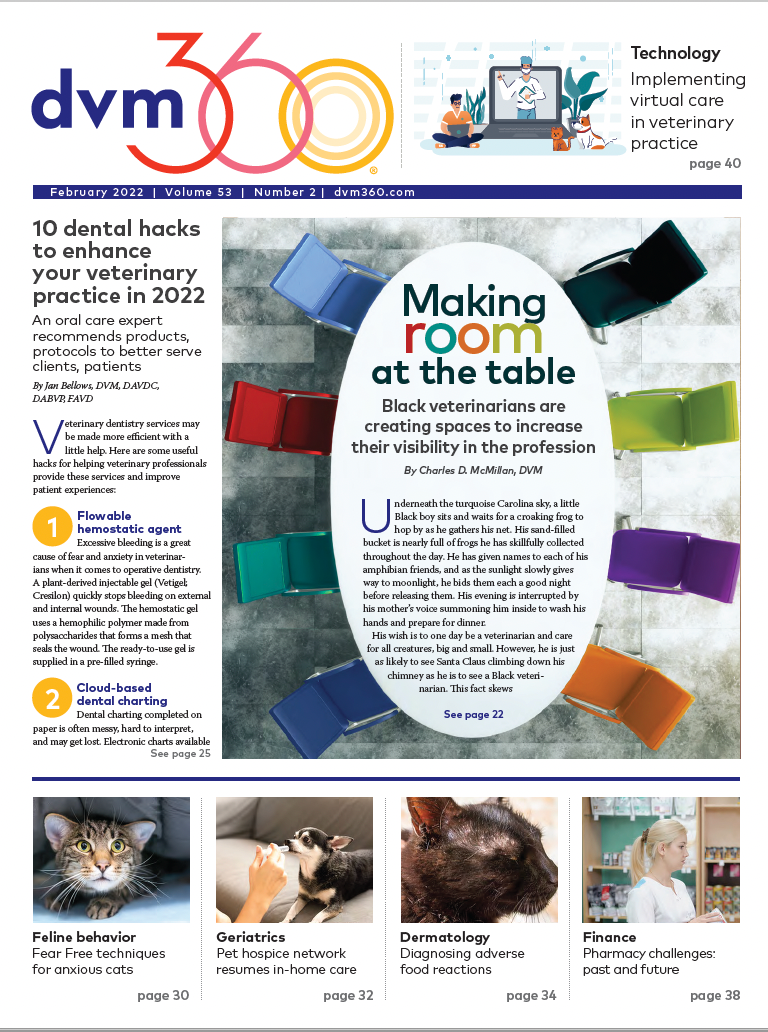The dilemma: approaching retirement
An older practice owner weighs future options for his business.
Editor's note: All names and businesses in this dilemma case are fictitious, but the scenario is based on real occurrences.
Veterinarian Jim Nye is the owner of Nye Pet Care. He started this practice 41 years ago. He has 4 associate veterinarians and a thriving practice. Over the years, he had built the brand that his community associated with quality pet care. He was a good boss, had little staff turnover, and all but 1 of his associate veterinarians had been with him for over 10 years.
Nye was well into his 60s and was still a vibrant and energetic veterinarian. Two of his younger senior veterinary associates were discussing that Nye was getting older and were curious about his future plans for his veterinary practice. Their interest was primarily rooted in their own job security, as Nye never mentioned any of his plans for the practice to anybody.
The younger associates respected their boss and were very comfortable asking him what he had planned for the upcoming years. Nye was a bit startled at first. He hadn’t thought of himself as old. He certainly had not thought of winding down or retiring, but 41 years is a long time to be on the job. After consulting with trusted friends and advisors, he decided he needed an exit strategy.
He did not even know where to start when it came to planning a future exit strategy. Clearly, the first step for Nye was to recognize he had been in a state of denial in recent years. When he thought about getting older, slowing down, or even retiring, he just put it out of his mind. Although he recognized he did not have to retire immediately, he certainly had to think about the not-too-distant future both for his sake and the sake of his coworkers.
To begin with, he needed answers to some pivotal questions. Were any of his associates interested in ultimately purchasing his practice? Should he consider taking on an interested associate as a partner, which may ultimately lead to ownership? What was the value of his practice, and where could he get this information? Finally, was he able to assign a time frame to his practice sale and ultimate retirement. After pondering these questions, it was clear to him why he was in denial.
Nye met with his associates and explained his journey of exploration toward an exit strategy. He learned that one of his associates was interested in the ultimate ownership of the practice. Nye and the associate agreed that a first step may involve some form of partnership agreement. His next step was to consult a practice valuation expert; someone who could give him a realistic practice appraisal as well as some insight as to what selling or transferring a practice was really like.
The expert he consulted gave him some guidelines to think about. First and foremost, he should not be forced into something that made him uncomfortable. If his goal was to continue to work and wind down his practice activity as he aged, then he should plan for that scenario. He was also cautioned about making these planning decisions in a timely fashion or, unfortunately, these decisions may be made for him. After considering an outright sale and retirement, or a sale and a timeline retirement, he ruled both options out. He would rather take the opportunity to bring in an associate as a partner so that practice ownership could transition while he remained a significant member of the practice health care team as he advanced through his senior years.
He now respected the wake-up call that was initiated by his valued associates. He explored his options and decided on his future exit strategy. More importantly, he took control of his destiny and the possibilities that may lie ahead. Do you think Nye handled his exit strategy appropriately? Were his associates out of line when suggesting he think of retirement? We would like to know your thoughts.
Dr Rosenberg’s response
This was a cautionary tale. It not only applies to when you should consider retiring, it also applies to all phases of a veterinary career. When is it time to move on? Should you start your own practice? Should you consider a partnership?
The message is that all professionals should take as much control of their destiny as possible. Always consider where you’ve been, where you are, and where you may be going. When a veterinary career is viewed in this way, it ultimately will be very fulfilling.

